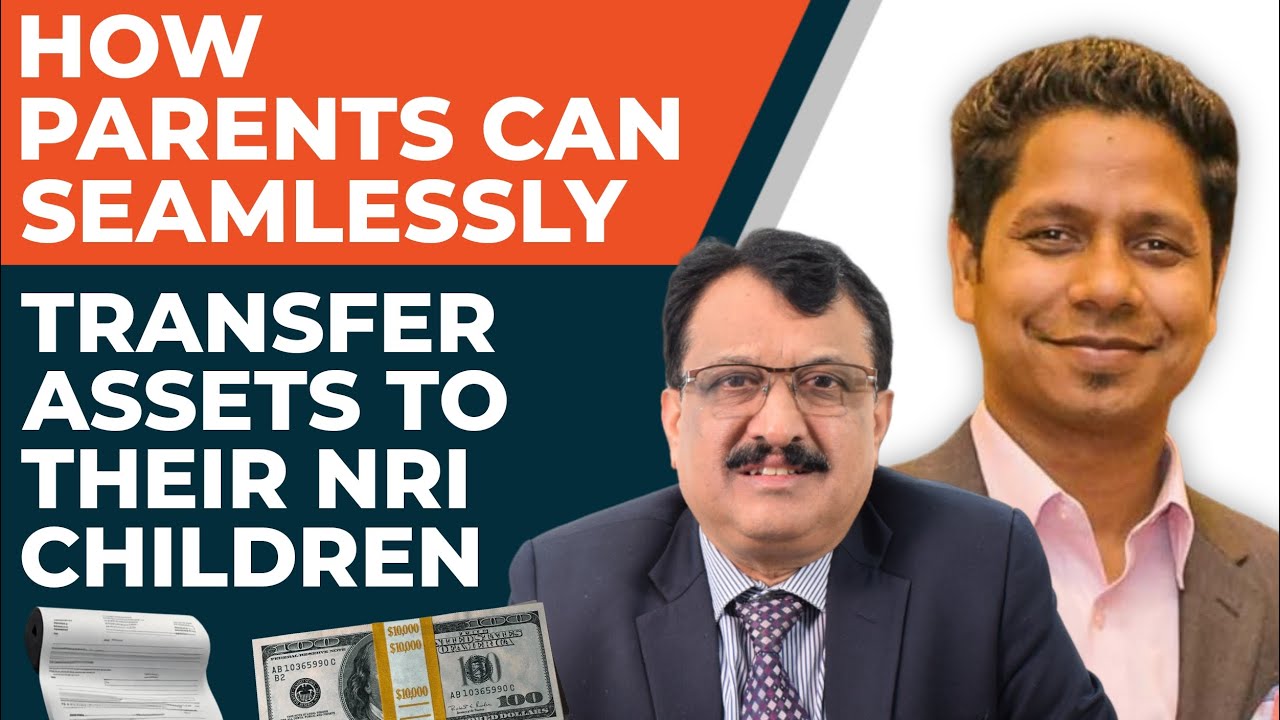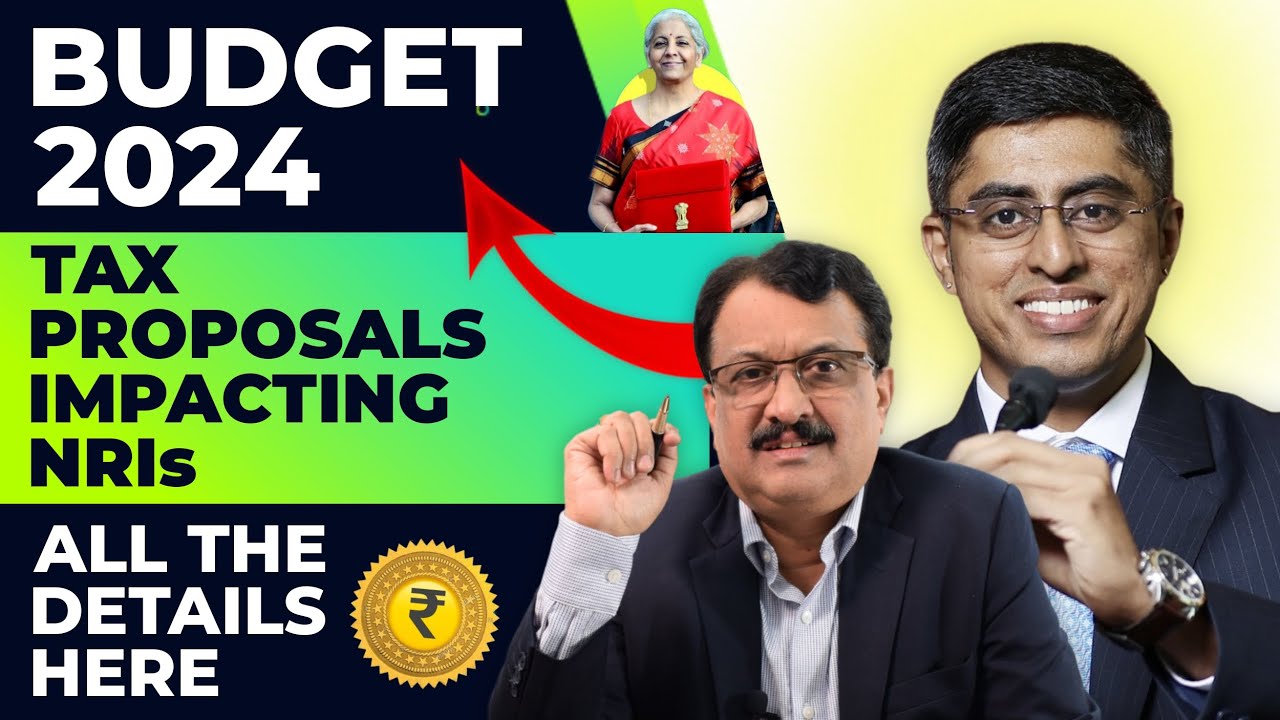Good News For NRIs - Capital Gains Tax Exemption On Sale Of Mutual Fund Units In India.
Summary
TLDRIn this episode of 'NRI Clinic,' Dr. Chandra Khan and Chartered Accountant Mr. Sriram Rao discuss strategies for Non-Resident Indians (NRIs) to reduce their capital gains tax in India. They explore the misconceptions around NRE and NRO accounts, clarify that capital gains from investments in India are taxable, and delve into the specifics of double taxation avoidance agreements (DTAAs) between India and various countries. The discussion highlights the importance of obtaining a Tax Residency Certificate (TRC) to claim tax exemptions and emphasizes the voluntary nature of availing DTAA benefits, suggesting that NRIs should consult with professionals to make informed decisions.
Takeaways
- 📚 The program discusses methods for Non-Resident Indians (NRIs) to reduce their capital gains tax in India.
- 👨🏫 Dr. Chandra Khan introduces the NRA Clinic with expert Mr. Sriram Rao, a chartered accountant specializing in direct tax and international taxation.
- 🏦 Investments made from NRE or NRO accounts are not exempt from capital gains tax in India if the investment generates income.
- 📉 Capital gains from future and options trading are not considered capital gains but are treated as business or speculative income.
- 💡 Profits from cryptocurrency are not classified as capital gains but are taxed separately under a specific section for virtual digital assets.
- 🤝 Double Taxation Avoidance Agreements (DTAAs) can provide tax relief for NRIs, depending on the provisions between India and their country of residence.
- 🏠 Immovable properties and certain business-related assets held in India are generally taxable in India, regardless of the NRI's country of residence.
- 🛂 To claim tax exemptions under DTAAs, NRIs must obtain a Tax Residency Certificate (TRC) from their country of residence.
- 📋 The TRC is essential for availing benefits under DTAAs and must be obtained annually for the relevant financial period.
- 💼 It's optional for an NRI to claim tax exemptions under DTAAs; they can choose based on which is more beneficial, considering the costs involved.
- 🔔 The program encourages viewers to consult with chartered accountants or research DTAAs to understand the tax implications for their specific situation.
Q & A
What is the main topic of discussion in the 'NRI Clinic' episode?
-The main topic of discussion in the 'NRI Clinic' episode is the possibility of how Non-Resident Indians (NRIs) can reduce their capital gains tax in India.
Who is the financial guide for the 'NRI Clinic' program?
-Dr. Chandra Khanna is the financial guide for the 'NRI Clinic' program.
What is the role of Mr. Sriram Rao in the episode?
-Mr. Sriram Rao is a practicing chartered accountant and a partner at Nitin Jay Shetty and Co, who specializes in direct tax and international taxation. He is the eminent faculty on the channel, simplifying tax codes for NRIs.
What is considered as a capital asset in India for taxation purposes?
-Capital assets in India include all kinds of property, especially immobile properties, and movable properties that are not stock in trade or personal effects. It also includes shares, securities, mutual fund units, unit insurance policies, jewelries, drawings, paintings, works of art, archaeological collections, and sculptures.
How is capital gain taxed in India for non-resident Indians?
-Capital gains are taxed as part of the income tax form in India. The income earned from the transfer of any capital asset is liable for capital gains tax as per Indian tax laws.
What is the misconception about investments made from NRE and NRO accounts in India?
-The misconception is that any income or capital gains from investments made from NRE and NRO accounts are tax-free, which is not true. Capital gains from the sale of assets invested in from these accounts are taxable in India.
How are profits from future and options trading treated for taxation purposes?
-Profits from future and options trading are not considered capital gains. If dealt in a recognized stock exchange, it is considered as normal business income, and if it is other than a recognized stock exchange, it is considered as speculative income.
What is the tax treatment of profits made from cryptocurrencies in India?
-Profits from cryptocurrencies are not considered as capital gains. They are treated as a separate category under the tax law, specifically as virtual digital assets, with a specific rate of tax given for them.
What is the importance of the Double Taxation Avoidance Agreement (DTAA) for NRIs?
-The DTAA is important for NRIs as it provides provisions to avoid double taxation on the same income. It allows NRIs to claim benefits and potentially reduce their tax burden in India based on the specific terms of the agreement with their country of residence.
What are the four categories of assets for which capital gains are always taxable in India, irrespective of the NRI's country of residence?
-The four categories of assets for which capital gains are always taxable in India are: immovable properties, mobile properties held in a business in India, shares held in an Indian company, and shares held in a company outside of India that derives its value substantially from immovable properties situated in India.
What is the significance of a Tax Residency Certificate (TRC) for NRIs claiming tax exemptions under DTAA?
-A TRC is a must for NRIs to avail the benefits of the DTAA. It serves as proof that the NRI is a tax resident of a particular country for a specific period, which is a precondition for claiming exemptions under the DTAA.
Can an NRI claim tax exemptions under DTAA if they are unable to obtain a TRC due to reasons beyond their control?
-In exceptional cases where an NRI is unable to obtain a TRC due to reasons beyond their control, such as the country not having a system for issuing TRCs, they may be able to claim exemptions under the DTAA if they can substantiate this with documentary evidence and convince the tax authorities.
How often does an NRI need to obtain a TRC to claim tax exemptions under DTAA?
-An NRI needs to obtain a TRC for each financial year for which they wish to claim tax exemptions under the DTAA. The TRC is valid only for the specific period it covers and must be re-applied for each year.
What should an NRI consider when deciding whether to claim tax exemptions under DTAA or pay taxes in India?
-An NRI should consider the costs associated with obtaining a TRC and compare it with the potential tax savings from claiming exemptions under the DTAA. If the cost of obtaining a TRC exceeds the tax benefit, it may not be financially beneficial to claim the exemption.
Outlines

This section is available to paid users only. Please upgrade to access this part.
Upgrade NowMindmap

This section is available to paid users only. Please upgrade to access this part.
Upgrade NowKeywords

This section is available to paid users only. Please upgrade to access this part.
Upgrade NowHighlights

This section is available to paid users only. Please upgrade to access this part.
Upgrade NowTranscripts

This section is available to paid users only. Please upgrade to access this part.
Upgrade NowBrowse More Related Video

How Parents can seamlessly transfer assets to their NRI Children

13 Points You Must Know NRE- NRO - FCNR Accounts

Budget 2024 Tax Proposals Impacting NRIs... All The Details Here

Which Is Better ? Investing In Dollars v/s INRFind Answer Here

NRI Banking, 10 Must Know Things For Every NRI

RETIREMENT PLANNING - Is It Safe To Depend On SWP Option Of Mutual Funds For Stable Cash Flows ?
5.0 / 5 (0 votes)